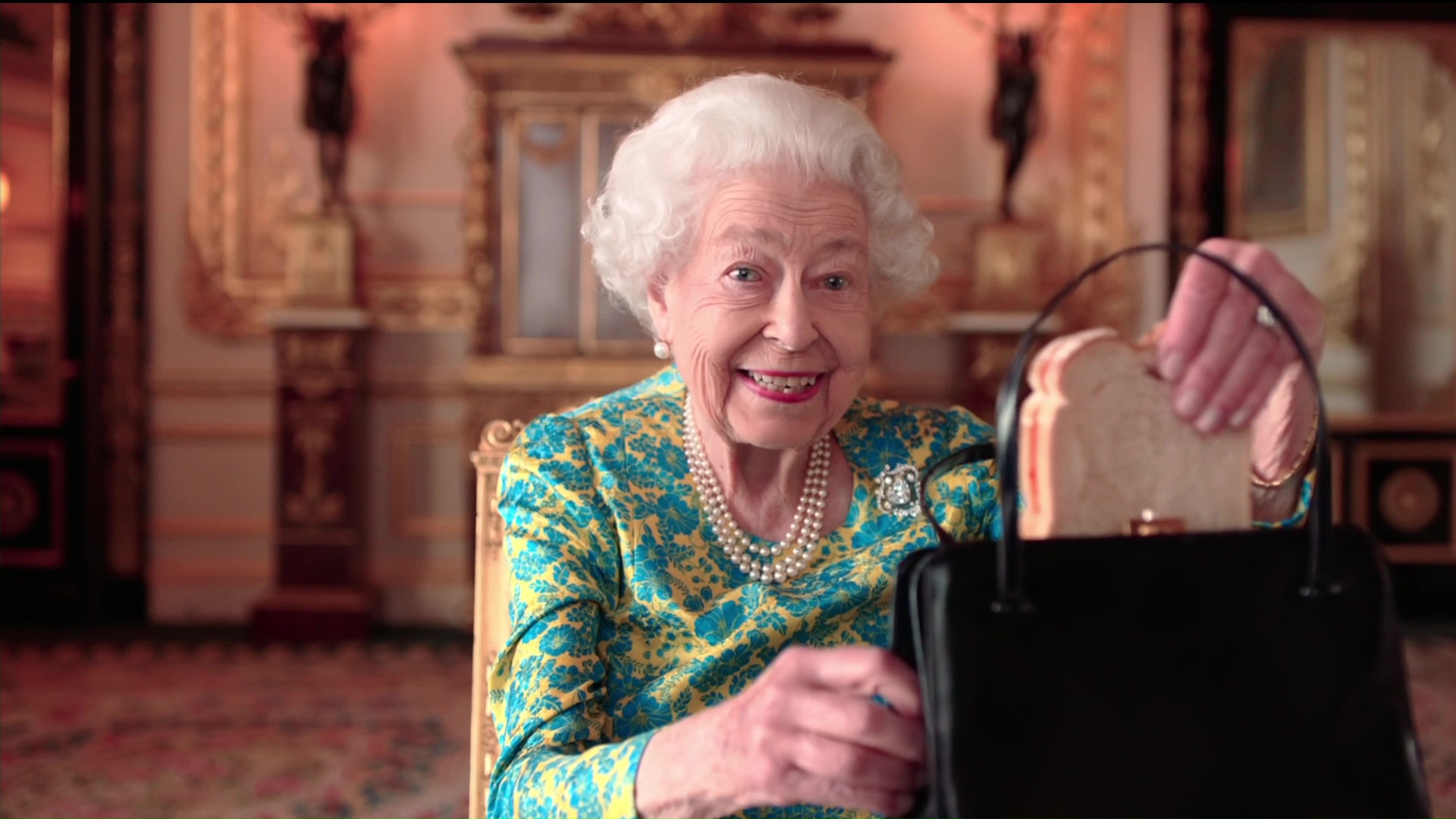She cares for horses. She does not care for Brits.
My favourite thing about Her Majesty the Queen is her utter contempt for her subjects. As she gets older, she seems less concerned about displaying it, and so the occasion of her Platinum Jubilee was a joy. Presented with yet more spectacular entertainment in her honour – perhaps West End performers giving the recital of their career, or Olympian athletes pushing their bodies to the absolute limit – the Queen maintains a forbidding scowl. The obsequious tributes of fellow national treasures barely register a gracious flicker of thanks. Her resting face is boredom, a fixed disinterested stare. And then a horse appears, and again she is animated, enraptured by the natural majesty of the equine form, commenting to her companions on the animal’s grace, strength, or, more likely, breeding. She cares for horses. She does not care for Brits. As she appeared on the palace balcony at the crescendo of her Jubilee, only when she lifted her eyes from her people and up towards the flypast of British aircraft did she break into a smile. She has long maintained an interest in engineering, which she regards as a ‘noble… modest profession’. But the clowning, gurning attempts of her people to demonstrate their gratitude in public seem to remain a source of misery for her.
One might think this disposition a poor basis for a popular monarchy. In many ways, however, it is her genius. Were she to care, to value us, to recognise the intimate truths of our lives, the constitutional order would crumble. The last thing the British want is a head of state who enjoys themselves. She is not a dictator bathing in the applause of the adoring crowd nor a playboy living high on the public hog. Most importantly, the fact she clearly hates it, and us, demonstrates that it’s nothing personal, just business: that is, that the role of the Firm is symbolic.
In this, she continues a tradition established by Queen Victoria. Prior to Victoria’s reign, the British were renowned precisely for the paucity of their coronations and royal celebrations. Pomp was not a British quality. Instead, like many European monarchies, it maintained a large court, concealed from the eyes of the public, and sustained ranks of debauched, fun-loving princes, dukes and duchesses, and other nobles. When Victoria took to the throne, she changed the shape of the monarchy, modelling it on the small bourgeois family but amping up the public spectacle, holding the first public royal wedding accessible to her public, and an enormous Diamond Jubilee which set the mold for today’s royal celebrations.

As with Victoria, Elizabeth’s joyless longevity has kept off the throne a man who cares, and enjoys, all too much. And while people loved Diana, because she hated every moment of it, they hate Charles, because he is, in his own idiosyncratic and stupid way, a man of passions: for ugly buildings, his wife, and biscuits. She knows she has saved her country a smiling king: perhaps she hopes she can outlive Prince Charles and pass directly to his stupid and traumatised son, prolonging Britain’s unreformed constitutional compromise and maintaining the ennui for as long as possible. It is for this reason the nation celebrates.
For their part of the compromise, the British return the favour. We hate the Queen as much as she hates us. Undoubtedly, some people do love the Queen as part of a deeply unhealthy parasocial attachment. Many more admire her. But for what? The word that always seems to come to the lips of half-embarrassed patriots is ‘duty’. ‘Well,’ they stutter, ‘you must admire her sense of duty, the sacrifices she has made for her role’. And there’s the giveaway, the implicit acknowledgement that the role of the monarch is fundamentally tedious, something to endure. God bless her, Her Majesty has endured four score years and ten of a relatively joyless existence – and she did it for you. You must admire someone who has wasted their life greeting thousands, millions of expectant and excited faces, who has seen out the collapse of empires, the rise and fall of political careers, man on the moon, the epochal technological transformation of everyday life, and has spent the whole of it asking strangers ‘and where have you travelled from?’ You must admire a family offered a treasury of the world’s cultural wealth, and yet who have developed no meaningful cultural patronage, a family who have the privilege of pursuing any intellectual curiosity, yet have chosen to barely educate themselves. You must admire that. And the British do. The Jubilee celebrates this strange, tedious torture – the mundanity and pomp obscures the real mode of the British establishment: a hard-nosed and efficient system of global brutality, exclusion and extraction; a big, profitable, racist machine she knowingly oversees, and for which she deserves no pity. These are the reasons nations across the Commonwealth are removing the Queen and all her colonial baggage.
The real pleasures of the Jubilee barely feature the Queen at all. Indeed, they celebrate the very things from which she is excluded: the easy domesticity of making the ‘Jubilee Trifle’ with your kids or grandkids, the street parties where you chat idly with your neighbours over tea and crustless sandwiches, and of course a day off work, spent in a beer garden. The Queen is ever-present at such events, waving from polyester flags and printed souvenir china, but they are joys which she will never know, from which we exclude her. That is her duty.
Huw Lemmey is the coauthor of Bad Gays: A Homosexual History (2022, Verso)
